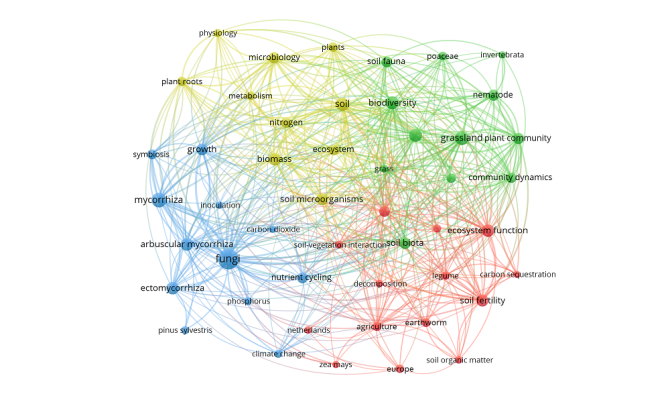Functional Soil Biodiversity
The theme 'Functional Soil Biodiversity' comprises research that aims to understand how the richness and community composition of soil biota is coupled to ecosystem functioning in (agro)ecosystems. We study these dynamic interactions in the context of plant-soil feedbacks, trait-based ecology of soil fauna and soil microbes.

Soils are amongst the most diverse habitats on earth and yet, we have only just started to discover how diverse they really are, as only recently the tools to study this diversity became available. At the same time, we know that soil life is under threat due to increased pressures on soils worldwide. We study how soil biodiversity is related to soil functioning and how this is affected by environmental and management changes.
Moreover we study the role of soil biodiversity in restoring soil functioning and in making (agro)ecosystems more resistant and resilient to perturbations, both from a fundamental and applied perspective. We are convinced that raising awareness about the richness of soil biodiversity, its roles and the pressures it faces is essential in making a real impact. We therefore contribute to numerous international and national initiatives to bring soil biodiversity to the attention of schools, policymakers and the public at large via the Global Soil Biodiversity Atlas, the ‘Bodemdierendagen’ and via numerous time lapse movies produced by our Soil in Action Studio with Wim van Egmond.
In our research, we work both in natural and agricultural ecosystems and often take a trait-based approach, for example to couple plant diversity to plant-soil feedbacks, earthworm diversity to soil functioning and nematode community composition to its indicator value of soil functioning. In our field and lab work, we make use of traditional methods such as field and microscopic observations as well as cutting edge techniques such as molecular analyses and remote sensing, in collaboration with other chair groups at Wageningen University & Research.